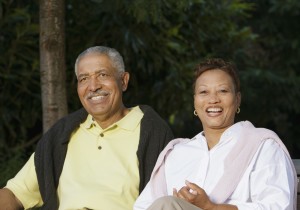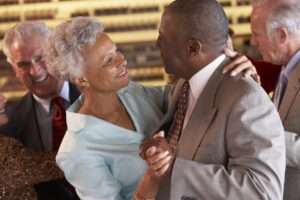“We travel not to escape life, but for life not to escape us.” – Anonymous
It seems every year there’s an outbreak of some terrible viral disease like Ebola and now, Zika virus. Jay Harold asks the question, “Is it safe to travel abroad.” The Centers for Disease Control and Prevention provides answers to this question.
Every year more and more Americans are traveling internationally1 — for vacation, business, and volunteerism, and to visit friends and family. Whatever your reason for visiting, the information on this page will help you to be Proactive, Prepared, and Protected when it comes to your health—and the health of others—while you are traveling.
BE PROACTIVE!
Take steps to anticipate any issues that could arise during your trip. The information in this section will help you plan for a safe and healthy trip.
- Learn about your destination.
- See a doctor before you travel.
- Think about your health status.
- Are you too sick to travel? (Recent illnesses, injuries, or surgeries)
- Do you have any special health needs? (Babies and small children, pregnant women, people with disabilities, people with weakened immune systems)
BE PREPARED!
No one wants to think about getting sick or hurt during a trip, but sometimes these things happen. You may not be able to prevent every illness or injury, but you can plan ahead to be able to deal with them.
- Pack smart.
- Plan ahead for illnesses or injuries during your trip.
- Know what to do if you become sick or injured on your trip.
- Know and share important information about your trip.

BE PROTECTED!
It is important to practice healthy behaviors during your trip and after you return home. This section outlines how you can protect yourself and others from illness during your journey.
- Pay attention to your health during your trip.
- Use sunscreen and insect repellent as directed.
- Be careful about food and water.
- Try not to take risks with your health and safety.
- Limit alcohol intake, and do not drink alcohol and drive.
- Wear a seatbelt.
- Wear protective gear when doing adventure activities.
- Respect your host country and its people by following local laws and customs.
- Pay attention to your health when you come home.
Jet lag2 can be a problem for travelers who are crossing several time zones. Although it is not a serious condition, jet lag can make it hard for you to enjoy your vacation for the first few days. For business travelers, who may be expected to travel long distances and start work immediately after arrival, jet lag can affect mood, the ability to concentrate, and physical and mental performance. Fortunately, you can take steps to minimize the effects of jet lag.
Before Travel
- Exercise, eat a healthful diet and get plenty of rest.
- A few days before you leave, start going to bed an hour or two later than usual (before traveling west) or earlier than usual (before traveling east) to shift your body’s clock.
- Break up a long trip with a short stop in the middle, if possible.
During Travel
- Avoid large meals, alcohol, and caffeine.
- Drink plenty of water.
- On long flights, get up and walk around periodically.
- Sleep on the plane, if you can.
After You Arrive
- Don’t make any important decisions the first day.
- Eat meals at the appropriate local time.
- Spend time in the sun.

The US embassy in your destination country can help you locate medical services.
- Drink plenty of water, and avoid excess alcohol or caffeine.
- If you are sleepy during the day, take short naps (20–30 minutes), so you can still sleep at night.
- Talk to your doctor about taking medicine to help you sleep at night.
Getting Health Care Abroad3
Travelers may get sick or injured without warning while traveling, and you should plan in advance how to get care when you’re overseas. This applies to all travelers but is especially important for senior citizens, pregnant women, people with pre-existing conditions, or people who will be in a foreign country for a long time.
Find a Doctor
The US embassy in your destination country (http://www.usembassy.gov/) can help you locate medical services and will notify your family and friends in the event of an emergency. When selecting a doctor, make sure that he or she can speak your language. The following resources provide lists of physicians and clinics that can care for travelers:
- The International Association for Medical Assistance to Travelers (www.iamat.org; membership required, but it is free)
- Joint Commission International (www.jointcommissioninternational.org)
- The International Society of Travel Medicine (www.istm.org)
- Travel Health Online (www.tripprep.com; gets information from various sources, so quality is not guaranteed)
Prepare in Advance

Consider whether you might need travel health or evacuation insurance.
Nobody wants to get sick while on a trip, but you can do some simple things to make sure you’re prepared, just in case:
- Consider whether you might need travel health or evacuation insurance.
- Register with the US embassy in your destination country at https://step.state.gov/step/.
- Bring any medicines you may need (pack extra, in case of delays) from the United States. Medicines in other nations may be counterfeit.
- Carry a card that identifies, in the local language, your blood type, any chronic illnesses you have, any medicines you are taking, and any allergies you have.
- Wear a MedicAlert bracelet if you have severe medical conditions.
Americans often mistrust people from different countries4. This is especially true if they have different cultural norms than Americans. The words of Shirley MacLaine should help reduce everyone’s mistrust.
“The more I traveled the more I realized that fear makes strangers of people who should be friends.”
Enjoyed this post? Share it and read more here. Jay Harold has put together a Resource page that you may find useful when trying to improve your health and wealth. Please take this advice of Muhammad Ali and give back to others. “Service to others is the rent you pay for your room here on earth.” ~ Muhammad Ali
Bibliography




